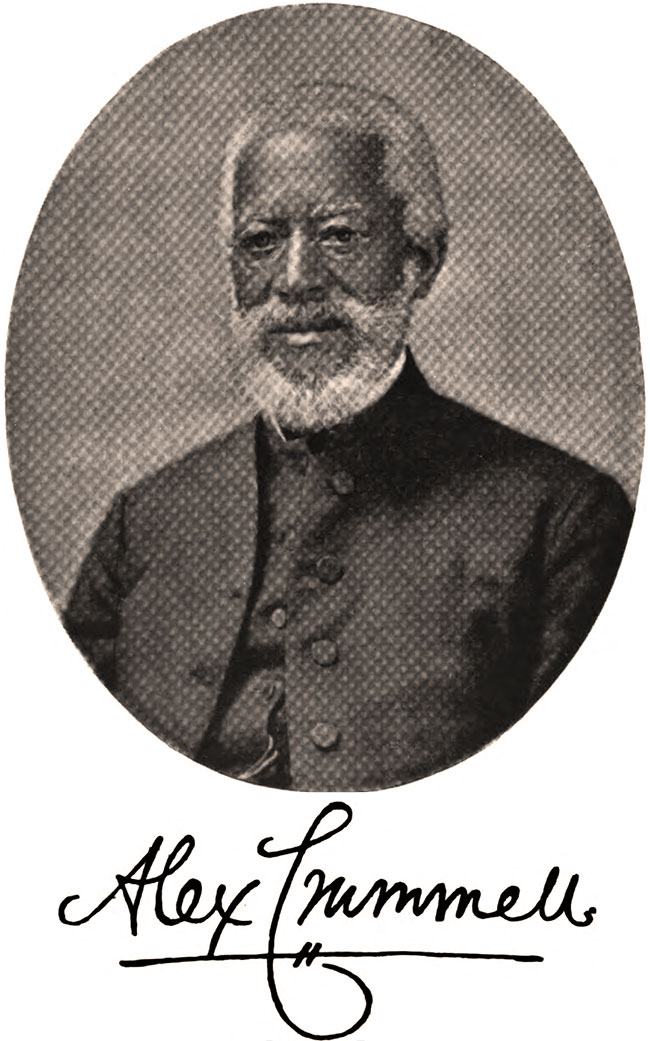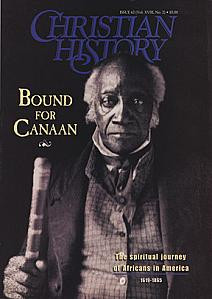CRUMMELL MASTERED GREEK TO PROVE THE WORTH OF HIS RACE

[Above: Alexander Crummell, frontpiece of The Future of Africa: Being Addresses, Sermons, Etc., Etc., Delivered in the Republic of Liberia. United States, Scribner, 1862. public domain]
ALEXANDER CRUMMELL was a full-blooded African American living before the abolition of slavery. Although he grew up free in the North, he experienced discrimination. Again and again prejudice shaped his attitudes and changed the course of his life.
Proslavery Senator John C. Calhoun allegedly said that if he could find a negro who knew the Greek syntax, he would recognize negroes as men. Crummell vowed to meet the challenge. In 1835 he enrolled in an integrated school in New Hampshire. After Crummell and friends gave speeches before an abolitionist group, angry Whites dragged the school building into a swamp. Frustrated and embittered, Crummell returned to New York.
He enrolled at Oneida Institute in a condition of “sinful rebellion,” as he put it, “without God and without hope in the world.” Acceptance by his White associates softened him. He left Oneida “a Christian athlete” determined to be a man of principle and usefulness. His developed a strong conviction that God places each person on earth to do good and holds them accountable. He decided to become a priest.
Denied admission to the General Theological Seminary of the Episcopal Church, Crummell engaged in an angry exchange with Bishop Onderdonk. Onderdonk won. However, the Rev. Dr. A. H. Vinton tutored Crummell privately and he became a priest in 1844. A few years into his priesthood, he visited England. Finding acceptance, he enrolled in Oxford University in 1848, but because of ill health did not graduate until 1854. He achieved his goal of reading the Greek New Testament as well as ancient Greek authors. Afterward he sailed to Liberia.
His dream was to build a nation of educated and godly Blacks and establish a church under their control. He wrote several books on behalf of Liberia. However, his efforts fell far short of his hopes. Ex-slaves rejected Crummell’s idealistic Christianity, which stressed self-sacrifice, suffering, and duty. The mulattoes who dominated Liberia looked down on him because of his dark skin. Crummell brought problems on himself because he was domineering and sensitive to slights. His university considered him unreasonable because he demanded to set his own hours and refused residence in a dorm. Nonetheless, his writings, such as The Future of Africa, were influential because he cited statistics and quoted literary sources, setting a high level of Black scholarship.
In 1872 he returned to the United States where he founded an Episcopal church, fought segregation, gave speeches, and published more books on behalf of his race. He saw Blacks as a chosen people whose sufferings were preparation for a glorious destiny on the world stage. Always interested in education, he taught at Howard University and helped found the American Negro Academy. Upcoming African American intellectuals, such as W. E. B. Du Bois and Marcus Garvey, admired him, although they did not give Christianity the prominence he did.
Crummell summarized his view of Christianity in these words:
To be a Xtian means that one believes in the Lord Jesus Christ as His Saviour and his God, and that this same Saviour is his example and pattern of his life. But the man who merely believes in Jesus, but refuses to let his belief shape & color his life, is not in reality a Xtian.
He spent his final days in Red Bank, New Jersey. In 1898 Crummell wrote to a friend:
Some day, ere long, [God] will call me away; but I trust, through Jesus Christ, my Lord & King, to be numbered with the just. I grow tired of myself constantly! What a mis-thing is a man in the presence of God; laden as he is with sins & guilt & infirmities & transgressions!
On this day, 10 September 1898, after dictating a letter to the African American poet Paul Laurence Dunbar, he had prayer and, with his wife holding his hand, slipped into eternity. The Episcopal Church lists him in its calendar.
—Dan Graves
----- ----- -----
For more on the African-American experience, read Christian History #62, Bound for Canaan






